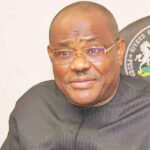
For instance, in April, 2022, the Group Chief Executive Officer of the Nigerian National Petroleum Company (NNPC) Limited, Mele Kyari, disclosed that the country lost $4 billion to oil theft at the rate of 200,000 barrels per day in 2021. The NNPC further said that the country lost billions of dollars in 2022 to pipeline vandalism which escalated.
Also, the Nigerian Upstream Petroleum Regulatory Commission (NUPRC), disclosed that the country lost over $1 billion directly to oil theft between January, March and September, 2022 while the NNPC said the country loses 470,000 barrels of crude oil monthly amounting to $700 million to oil theft.
For many Nigerians, it was not cheering news that the nation could not benefit from rising crude oil prices at the international market. When Russia invaded Ukraine last year and the prices of crude oil soared to as high as $130 a barrel, the highest since July 2008, after the United States and its allies sanctioned Russia over the invasion of Ukraine, the increase was not good for Nigeria. It was discouraging to know that one of the largest producers of crude oil in the world could not exploit the rising oil prices to generate more revenue for the country due to its inability to refine locally and meet the oil production quota set by the Organisation of Petroleum Exporting Countries (OPEC).
Mele Kyari’s Unwavering Focus despite Challenges.
In the midst of these challenges, the NNPC Limited has something it could boast of-right leadership. If everything rises and fall on leadership, the company may have nothing to worry about. Its GCEO, Mele Kyari, according to stakeholders in the oil sector, has kept faith through the right stewardship. Many have attested to the fact that within three years of his stewardship as the GCEO, NNPC Limited, Mele Kyari has reinvigorated hope of a better oil sector by leading the transformation of the NNPCL.
He led the company from a loss-making company to a profitable one in the year 2020 when, for the first time in its 44 years of history, NNPC declared a profit after tax of N287Billion. This was scaled up to N674billion profit after tax in 2021. He also led the successful resolution of protracted contractual disputes including: Various Production Sharing Contracts (PSC) disputes with International Oil Companies (IOCs) leading to a potential exit from national contingent liabilities in the excess of $9billion dollars; OML 118 dispute with PSC partners and the renewal of the acreage, clearing the way for a $10 billion prospective investment for the development of the Bonga South-East Field; Execution of Abo OML 125 Heads of Terms that resolved issues around most of the deep offshore Production Sharing Contracts, which also paved the way for the renewal of OML 125 for further investment to boost the nation’s crude oil production.
The NNPC, under Kyari’s leadership also secured the restoration of production activities in OML 25 whose shut-in due to protracted dispute between Shell and Belema Oil was costing the country over 30,000barrels per day in lost production volumes.
Kyari and his team have, in order to reposition NNPC for global competitiveness, secured alternative project financing for several important projects including: $5Billion corporate finance commitment from the Africa Export Import Bank to fund major investments in Nigeria’s Upstream sector; Alternative Financing and Technical Services package worth N875.75m for NPDC’s OML 65 in order to increase national production; Alternative Financing Package worth $3.15bn with Sterling Exploration and Energy Production Company Limited (SEEPCO) and other partners for the development of NPDC’s OML 13.
Despite the impact of the COVID-19 pandemic on global investment, Mele Kyari, in December 2019, achieved the closeout of the Final Investment Decision of the multi-billion-dollar NLNG Train 7 Project that has been on the drawing board for over a decade. Mele has successfully renegotiated the Ajaokuta-Kaduna-Kano (AKK) Gas Pipeline contract. The AKK Gas Pipeline is an integral part of the Trans-Nigeria Gas Pipeline (TNGP) with a capacity to transport about 2.2billion cubic feet of gas per day. The contract was renegotiated from the initial $2.8billion to $2.5billion, achieving cost savings of $300million in favour of the Nigerian government. Construction work on the project was flagged-off in June 2020.
Mele also led the signing of a $260m Financing Agreement for the Assa-North Ohaji South (ANOH) Gas Project with Seplat to deliver 300 million standard cubic feet of gas per day and 1,200 megawatts of electricity to the domestic market.
In April 2021, Mele Kyari led the successful execution of a Gas Development Agreement (GDA) for OML 143 with Sterling Oil Exploration and Production Company (SEEPCO) which will boost National gas production by 1.2 Trillion Cubic Feet (TCF). Mele Kyari has a flair for execution excellence as a result of which NNPC is making progress in the delivery of many game-changing projects including: The completion of Escravos-Lagos Pipeline System II (ELPS II) and Oben-Obiafu-Obrikom (OB3) gas pipeline to increase delivery capacity from 1.5BCF/D to over 3.5BCF/D; Commissioning of Oredo Integrated Gas Handling Facility (IGHF) and the Liquefied Petroleum Gas Storage and Dispensing Unit owned by the NNPC E & P Limited (formerly NPDC). The facilities currently deliver over 200 million standard cubic feet of dry gas per day and 330 metric tonnes of Liquefied Petroleum Gas (cooking gas) into the domestic market among others.
Recognitions and Commendations
For recording several achievements in office, The Sun Publishing Company, publishers of The Sun Newspaper, for the second year running, honoured Kyari with the prestigious “The Sun Man of The Year Award 2022.” for his “outstanding contribution to national development” On Saturday, January 28th 2023, in Lagos.
A group under the umbrella of Greater Nigeria Professionals (GNP) has commended Kyari, for the honour. While describing the conferment of the Award on Kyari as well deserved, GNP said rewarding a performer for outstanding contribution to national development, will no doubt encourage all persons holding public office and leaders that outstanding performance would be rewarded.
In a statement signed by the GNP Chairman, Dr. Ahmed Tahir, he said although in 2021, Kyari was recognized with this particular award, to the admiration of Nigerans and many other stakeholders, his unrelenting efforts at making indelible mark in national development as continued to encourage the Borno-born oil czar to keep pushing for a better Nigeria. The group said it decided to commend Mele Kyari because he has always served Nigeria diligently throughout his career, especially championing transparency and accountability in the operations of the oil and gas industry.
What Kyari, NNPC Are Doing About Fuel Scarcity
According to an analyst, Festus Chukwuma, many Nigerians are not well-informed about the cause of the unfortunate scarcity of petrol that has been bedevilling the country for some time now. According to him, because of a poor understanding of what is going on, Nigerians look for and find a scapegoat in the NNPC Ltd and its leadership under Mele Kyari. ‘‘If only they know the dynamics that combine to produce these fuel queues, they will be saluting Mr Kyari and the NNPC under his leadership, instead of maligning him. Kyari, who is without any doubt one of the most patriotic, hardworking and intelligent Nigerians around, works 24/7 to make sure that despite daunting challenges, PMS, or petrol, is available in Nigeria daily. On average, the NNPC evacuates 60 million litres daily, sells it to marketers at a price lower than the market value and still manages to pay taxes and royalties to the FG, which the government (federal, state and local) utilize to run the country,’’ he said.
Experts’ Views
Speaking on Kyari’s leadership at the NNPC Limited, Development Lawyer & Executive Director, Citizens Advocacy for Social & Economic Rights (CASER), Frank Tietie said that Mele Kyari exemplifies tenacity in holding unto high standards in the midst of national and global challenges in the oil and gas sector. He said any leader who sets out to apply the principles of accountability in Nigeria of today would always make a significant impact, especially in a sector and a corporation that have had a history of complexities and opacity. This is what has made Kyari to stand out in the long line of past leadership of the Nigerian National Petroleum Corporation (as it then was).
He said, ‘‘His determination to practise accountability goes far beyond transforming the NNPC into a profit making venture, for the first time, after decades of operating perpetually at a loss but his example becomes the signpost that whenever leaders, in corporate or political circles choose to operate with a sense of responsibility and accountability to the good of the Nigerian people, things will change quickly for the better.
‘‘It has taken the strong character and management expertise of a personality like Mele Kyari to be able to oversee the most challenging period in Nigeria’s oil and gas history. With the tremendous demands occasioned by the global trends of moving towards alternative energy sources and the need to transform the NNPC into a viable commercial entity, capable of competing with other global energy giants like Saudi Aramco, many Nigerians didn’t give Kyari the chance that he would successfully reposition the NNPC, especially in the wake of the enactment of the Petroleum Industry Act which required the outright transformation of the old NNPC within the space of just 6 months, into a private and commercial entity, free from government control and management.’’
Hope Not Lost
Speaking on the outlook for 2023, Kyari said that Nigeria will produce 2.2 million barrels of crude oil per day in 2023. He said, “Definitely, we can hit our target of 2.2 million barrels per day, but our budget target is 1.8 million bpd. There are construction works that we are doing on our pipelines that will aid our oil production,” said Mele Kyari.
Experts believe that by solving the insecurity challenges and underinvestment which has plagued the sector in the last ten years, by taking practical steps, there is hope for the oil sector. “When we get back our refineries with a combined capacity of 450,000 to 455,000 bpd and the Dangote refinery that will come up by the mid of this year, our national capacity will be somewhere around 1.1 million bpd,” said Kyari.










